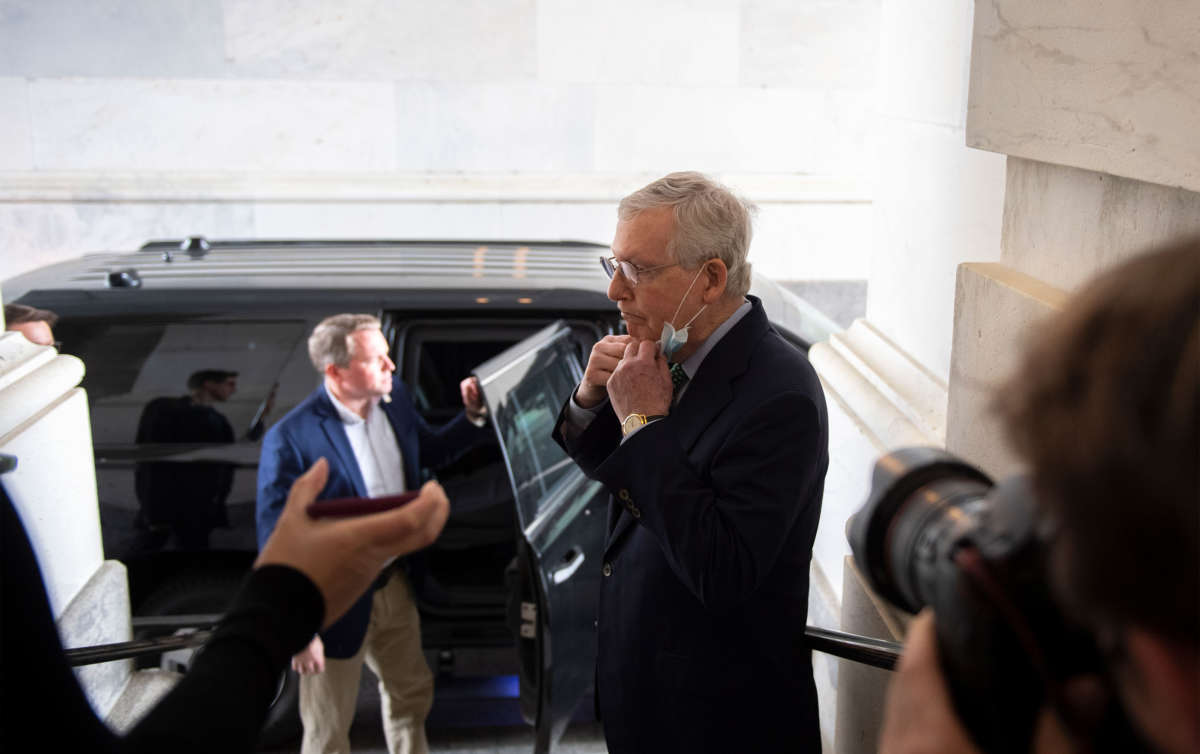Protests against stay-in-place measures have occurred in a number of states across the nation, in spite of the fact that some health experts are saying such demonstrations could themselves lead to an increase in the spread of COVID-19.
While it’s not possible to directly link the protests with a spike in infections, at least one state where such events have regularly happened is seeing the number of cases of COVID-19 go up.
Last week, hundreds of Kentuckians engaged in protests at the state capitol building in Frankfort, Kentucky. In one of those protests, participants gathered on the capitol lawn where they were successful in disrupting Gov. Andy Beshear’s press conference on COVID-19 by shouting outside a window where he was speaking.
On Friday, dozens of vehicles returned in a caravan to the state capitol and surrounded the building to further protest against Beshear’s stay-in-place mandate. Participants at that event argued that the order from the Democrat governor was an overreaction to the threat the disease poses.
“There’s just no need for it. The numbers just don’t add up,” protester Jimmie Staley said to the Louisville Courier Journal.
Over the weekend, however, the state reported its highest single-day increase in the number of reported cases of the disease.
“We’re still in the midst of the fight,” Beshear said, as he announced 273 cases had been identified in the Bluegrass State on that day.
Kentucky’s seven-day average of cases being identified per day is well over 100, according to tracking from The New York Times. There have been 155 COVID-19 deaths identified in the state so far, with more than 3,000 cases identified in total.
There is no identified correlation between the protesters’ actions last week and the increase in the number of cases reported on Sunday. However, the numbers seem to cast doubts on assertions that the state does not need stay-in-place measures to continue.
If some Kentuckians don’t appear to be taking the threat of coronavirus seriously, their representation in Washington seems to be more cautious about things. Senate Majority Leader Mitch McConnell, for example, while speaking to reporters on Tuesday about a potential increase in funding for a small business relief package, wore a mask to protect himself from the coronavirus.
Americans, for the most part, are wary of ending stay-in-place orders to supposedly “reopen” their economies, and a vast majority are not supportive of the calls for states to do so. Only 10 percent of Americans, according to a recent Navigator Research poll, say they want to see social distancing measures come to an end, while 86 percent say they want the measures to remain in place or even be extended to some degree.
24 Hours Left: All gifts to Truthout now matched!
From now until the end of the year, all donations to Truthout will be matched dollar for dollar up to $18,000! Thanks to a generous supporter, your one-time gift today will be matched immediately. As well, your monthly donation will be matched for the whole first year, doubling your impact.
We have just 24 hours left to raise $18,000 and receive the full match.
This matching gift comes at a critical time. As Trump attempts to silence dissenting voices and oppositional nonprofits, reader support is our best defense against the right-wing agenda.
Help Truthout confront Trump’s fascism in 2026, and have your donation matched now!
